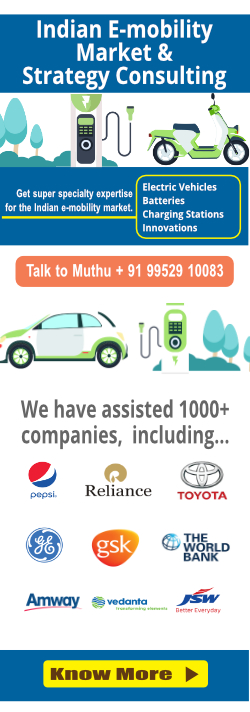In October, we caught up with Bengaluru-based social entrepreneur Samanvi Bhograj of Visfortec Private Limited. Plastic pollution or white pollution has become a dire global threat, and the situation continues to become worse. A report from the Ellen McArthur Foundation released in the beginning of this year revealed that globally 300 million tonnes of plastics are produced every year (more than 1/3 of which leaks into oceans and other ecosystems) and as per projections, by 2050, there will be more plastics by weight in oceans than fish.
Samanvi has thought about our society’s addiction to disposable plastics, and started Visfortec at 25 soon after completing her education. Visfortec mainly provides bagasse-based plates, cups, bowls, spoons, takeaway containers and delivery containers. Apart from these, they also make bioplastic food containers (which they separately label as compostable containers), waste bags, and cloth/paper bags. Further, for their cloth/paper/jute bags, Samanvi provides livelihoods to nearby rural women, who make these products from the comfort of their homes.
Samanvi and Visfortec have enjoyed success with coverage in Outlook Business, The Economic Times, BTV News, Times of India, Prajavani and others. We talked with Samanvi to know her views on biodegradable products and bioplastics as a potential solution to the plastics problem, and to learn the principles behind her company.

Earthware Products from Visfortec Pvt. Ltd.

Samanvi standing (behind in the center) with the people she employs
- I understand that you had started with bioplastic products based on PLA but have subsequently been focusing mainly on bagasse-based natural products that can be used as containers and cutleries. Is this correct?
Yes, we manufacture disposable tableware made from plant biomass that is 100% biodegradable and compostable.
Over the years, we have seen visible change in the environment, little do people know that this is because of we ourselves. The intention of starting PLA-based bioplastics was to reduce the consumptions of petroleum-based plastics. Disposable plastics is a key part of all our lives today and has become a matter of convenience. From the time, we wake up until the end of our day we use so much plastic, but we are not much aware of where these end up once disposed. We initially felt, PLA was a replacement for plastic, and the idea of composting [composting infrastructure is required for bioplastic disposal; another end-of-life option is recycling, but it’s even more expensive option] should be inculcated in people to reduce garbage and waste in general. We still do make PLA-based covers, but we don’t see the disposal of these happening in the right fashion as they require controlled atmosphere to biodegrade [i.e., industrial composting facilities, which use aerobic conditions with temperatures >60°C]. We, therefore, are now more into bagasse products.
Bagasse-based products have no relation at all with PLA-based bioplastics. These 2 are processed in very different ways. Bagasse-based products readily degrade in landfills and don’t need industrial composting facilities like PLA.
- Could you comment briefly on the comparison between bagasse-based products and PLA-based products with regards to consumer appeal, the costs and/or production technology?
Bagasse-based products have a very fine and clean finish, when compared to something like an areca plate or bowl. Yes, they are about 10-20% costlier than areca products but in terms of hygiene, appearance, production process and also the form of the raw material, they are far more superior.
- What products (within the tableware) are you currently making?
We manufacture a whole range of tableware, including plates, bowls, cups, meal boxes etc. You can find our whole product list on our website (www.visfortec.com/products).
- Which are the end use sectors that have adopted your products (e.g., food chains etc.)?
Our product are mainly for the food industry. The food Industry in general has been receptive to these products as they are items that they use on a day to day basis. Mostly restaurants with take away and delivery use some of our meal boxes; caterers often use the plates and bowls. You also have food chains that use these to serve food and snacks in-house. MNCs providing for food and snacks to their employees in their campuses also use them.
- What motivates these users the most in buying your products? Is it a clear functional advantage that your solutions might be providing for their circumstances or is it a desire to go green?
We have seen a change in the mindset of the consumers over the years. Awareness has increased among people, and they are now more conscious about products that they are using. And not only with our products, but the general trend is slowly moving towards sustainable solutions in all area
- On cost, it’s common knowledge that bioplastics are much more costly (2-3 times) than conventional plastics. What about your bagasse-based products? Are they more expensive too compared to their equivalents? How do you think their price can be brought down?
Compared to traditions plastic, bioplastics are more expensive, but that come down with volumes. Same is the case for plant-based disposable tableware: as consumption increases cost would reduce.
Bioplastic tableware (as available in other countries) would definitely be higher than the cost of bagasse-based tableware. As the technology used for production too are different. I personally don’t see a market for PLA- [or PLA blend-] based tableware in India as bagasse and areca are materials that Indians are familiar with. Also areca is a product that has been used for a long time, being native to South India, and is therefore easily adaptable. Similarly, Karnataka is one of the largest producers of sugarcane in India.
India has not yet been exposed to bioplastic tableware. Recently, we only see bioplastic packaging. Namely, PLA and corn starch [i.e. a blend of corn starch along with PLA resin] covers and bags. It is a very new market, and bagasse tableware too is only slowly gaining popularity among big cities.
We see a drop in the costs of our products with increased awareness that directly increases the demand. Higher volumes help bring down the costs.
- What kind of technical partnerships have you established for your products? Have you invested in your own R&D?
Yes we have. Technology is vast and gets outdated every single day, especially in the manufacturing space. If we don’t invent newer and more efficient ways to manufacture, we wouldn’t be able to catch up with the ever-changing world around us. We are striving towards achieving Industrial standards of manufacturing by constantly updating our processes and also the means of getting more efficiency and throughput in the outcome. We are also investing in bringing in alternative sources of energy for manufacturing (biomass briquette as source of energy); it is still in R&D as of today, since the adaptability and availability of such alternative sources is very less in India.
- What are the challenges for increased use of bioplastics do you see in (briefly) end users, regulations and technology?
In India, composting facilities and disposal of garbage are the biggest challenges that need to be first set right before introducing bioplastics to the common man. These do not compost in natural atmosphere and need controlled atmosphere to degrade.
- What are your company’s future plans, with respect to products, market segments and regions?
We believe in creating value for society and would want to make biodegradable products available on a larger scale across the country at an affordable cost to all. We are currently focused on the disposable tableware, to reduce and over the time eradicate the use of plastic tableware. We are looking into adding water/juice cups and container to our existing line shortly.
Further down, we intend to look into all industries to provide eco-friendly packaging solutions; it could be electronics to toys to textile. Any product currently being packed with, say, thermocol or other plastic, can easily be replaced with bagasse or even recycled cardboard packaging.









